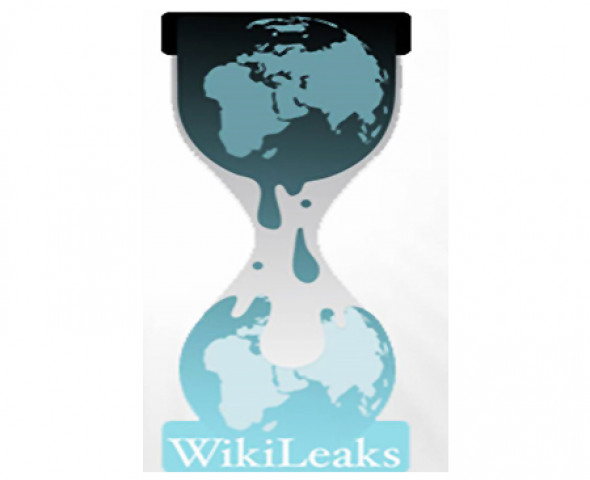It was never really a secret that Saudi Arabia did not like Iran. Perhaps there may be a sectarian history to this or maybe it is simple old realpolitik with two large states vying for regional power. But Saudi Arabia isn't the only Muslim country that seems to loathe Iran. There is the UAE and Kuwait as well as, albeit to a lesser extent, Qatar.
According to a cable of Feb 9, 2010, from US ambassador to UAE to Admiral Mike Mullen, head of the US armed forces, prior to the latter's meeting with the UAE crown prince and defence minister, the UAE is one of America's most trusted partners in the region and "most useful friends worldwide".
The ports of Dubai and Fujairah are the "logistics backbone for the US Fifth [Fleet]". The US Navy's Fifth Fleet is responsible for operations in the Persian Gulf, the Red Sea, Arabian Sea and down south as far as eastern Africa. Minhad airbase, some 20 kilometres south of Dubai is "a critical hub for coalition/ISAF partners in Afghanistan, including the Australians, Dutch, Canadians, Brits and Kiwis".
This cable says that the UAE leadership sees Iran as its "primary external threat". The defence minister and crown prince of the UAE is said to not believe that the west will be able to put adequate pressure on Iran and also is of the view, according to this cable, that Tehran cannot be persuaded to give up its nuclear weapons programme. As a result, his efforts to build up the UAE's armed forces is seen as "near-obsessive". The UAE has "quietly" deployed forces in Afghanistan, being the first Arab country to do so. The Americans are told by the UAE defence minister, much to their disbelief, that Iran is active in destabilising Yemen, by supporting the Houthi (who are said to Shia) rebels.
The UAE's obsession with Iran seems to run deeper than that of even the Americans. According to cable dated Feb 22, 2010, from the American ambassador to the UAE, the country's foreign minister Sheikh Adullah Bin Zayed Al Nahyan, told a visiting delegation of US Congress members in a meeting on Feb 17 that the nuclear issue "is only one aspect of the Iran problem, and that Iran's regional meddling was a serious concern". He said further that the UAE was concerned that "Gulf allies were being shut out of Iran sanctions planning".
A cable by the US embassy in Kuwait dated Feb 17, 2010, detailed a meeting between Kuwait's interior minister Jaber Al-Khaled Al Sabah and the US ambassador. The minister said that he was "deeply concerned about Iranian actions, particularly in Yemen with the Houthis" and that Iran was the "beating heart" of Islamic extremism, adding that "even Palestinians now aspire to be Shia because they have bought Iranian 'stories' about Shia being more prepared to "fight to the end" and stand up to Israel".
A cable by the US embassy in Muscat, Oman, dated Feb 2, 2010, suggested that Oman was very unhappy about an article in the New York Times that had perhaps suggested that it, along with other Gulf states, was going to receive Patriot missile batteries from America. In a 'comment' on the reaction of the government of Oman, the US embassy noted that a statement by a senior Omani official denying any such proposal would also serve to "protect the US/Omani relationship, as any belief that the US would attempt to utilize Omani territory in this way could potentially cause a public backlash that would jeopardize other aspects of the relationship". Furthermore, while "Iran is Oman's number one strategic threat; however, the Government of Oman fundamentally believes the threat can be mitigated through careful management of the relationship. Therefore, it works very deliberately to create a public perception of balance in its relationships with the US and Iran".
According to a cable of Jan 26, 2010, from the US embassy in Ankara prior to a visit by US Defence Secretary Robert Gates, Turkish Prime Minister Tayyip Erdogan's stance on Israel came up, especially his "outburst at Davos". The cable said that both the Americans and "his staff" (meaning that of the Turkish prime minister) were seeking to "contain" such behaviour.
A cable describing a meeting on Feb 8, 2010, between and the US defence secretary and the French foreign minister in Paris quoted the two discussing the situation in Pakistan. It quoted him as saying that it was "astonishing" that President Zardari had remained in power and that the Pakistanis had conducted such effective COIN operations. The defence secretary "commented that one can never be an optimist about Pakistan, but that the changes had been striking".
A cable from Jan 28, 2009, detailed a meeting between the Dutch and Russian ambassadors to Saudi Arabia, accompanied by a senior US embassy official with the undersecretary for multilateral affairs at the ministry of foreign affairs in Riyadh. During the course of the meeting, discussion came on Iran with the Saudi official saying that if Iran were to acquire nuclear weapons "other countries in the Gulf region would be compelled to do the same, or to permit the stationing of nuclear weapons in the Gulf to serve as a deterrent to the Iranians".
WikiLeaks: Whither Muslim brotherood?
Saudi Arabia isn't the only Muslim country that seems to loath Iran. There is UAE, Kuwait and Qatar as well.


COMMENTS
Comments are moderated and generally will be posted if they are on-topic and not abusive.
For more information, please see our Comments FAQ